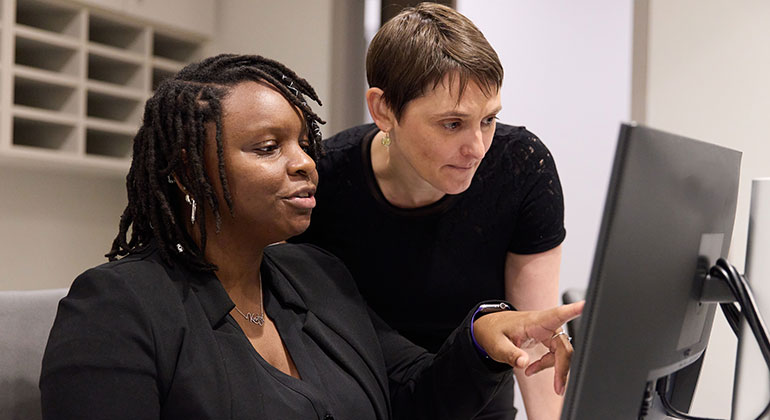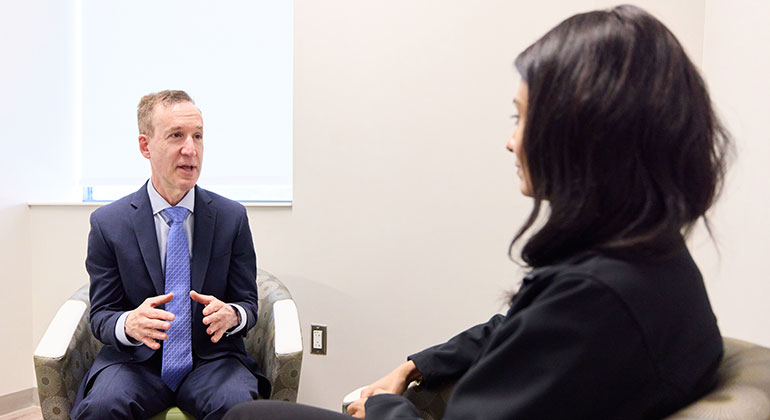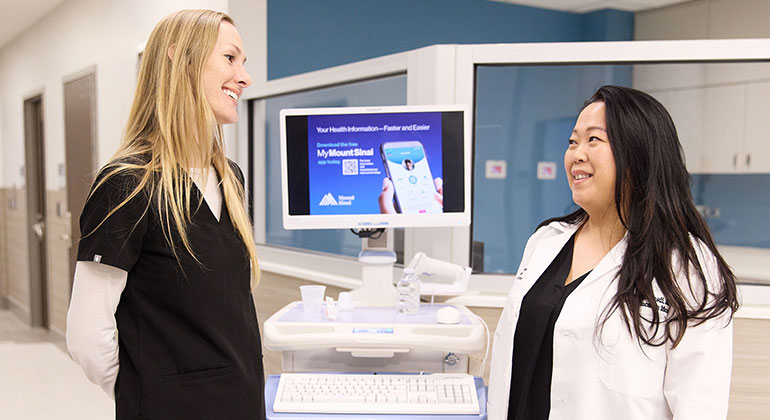
Our Model
Mental health, addiction, and physical health are linked in complex ways and are frequently associated with one another. Integrating care into a single location is fundamental to our model of care—with the goal of improving health outcomes and the patient experience.
An Integrated Continuum of Mental Health, Substance Use, and Primary Care Services at a Single Location
At the Mount Sinai-Behavioral Health Center, patients can access these services in a unified, coordinated way. It begins with a comprehensive evaluation to assess the mental health, substance use, and medical needs of each patient. Care is provided by multidisciplinary teams of clinicians with expertise in mental health, substance use, and physical health.
“The lack of integrated and coordinated care results in increased visits to emergency rooms and hospital admissions. With this Center, we have created a model that improves care for people with mental illness, substance use, or both—while advancing our understanding and ability to treat it.”
– Grant Mitchell, MD
Site Chair for Psychiatry, Mount Sinai Beth Israel

Addressing Gaps in Behavioral Health Care
Behavioral health care faces long-standing challenges including accessibility, decentralized care, and a lack of sub-acute or “step-down” outpatient behavioral health services. Too often, the primary options for care are emergency rooms, inpatient hospitalizations, outpatient therapy, or medication-based treatment. Compounding these historical issues is our current mental health crisis nationwide, exacerbated by the COVID-19 pandemic. There are many other types of behavioral health services that can and should be available to provide more intensive treatment and community supports outside of the hospital setting. We believe that these kinds of programs can prevent people from experiencing severe symptoms of illness that lead to emergency or inpatient care.
Our vision is not just to provide integrated services in a single location, but also to add critical new services that address the gaps in behavioral health care. These new services include the Intensive Crisis Residence, the Partial Hospitalization, and the Intensive Outpatient programs, which provide a step-up from clinic-level services and are alternatives to hospitalization.
Our outpatient clinic-level services offer fully integrated mental health, substance use, and primary care services. This means that you will be able to get any combination of mental health, substance use, and primary care services all on one floor, and your providers will work together in a coordinated way to manage your overall care.
Comfort and Healing
At the Mount Sinai-Behavioral Health Center, we treat all patients and families with dignity, compassion, and respect. This commitment to provide an outstanding patient experience extends to the warm, healing environment we have created in the building. The tall ceilings, abundant natural light, artwork, and outdoor courtyard are designed to create a sense of peace and calm. Welcome rooms, recovery areas, and therapy spaces facilitate dignity and wellness for patients.
Finally, the Center offers space for community use including lectures and educational events in order to promote awareness and understanding of important topics to our community.

Transforming How We Work for the Benefit of Patients
Patients and their families often report being confused and frustrated as they try to navigate and access behavioral health care services. At the Center, we redesigned our clinical and operational processes—with the goal of making it easier for patients to get the care they need. We’ve made every effort to streamline and integrate how patients access our services—as well as working to coordinate seamlessly with other services offered by the Mount Sinai Health System and partners in the community.
Since patients have the advantage of receiving mental health, substance use disorder, and primary care services in one location, communication and coordination between the care team is also enhanced. Each patient receives a single, comprehensive evaluation from our team instead of multiple assessments in different locations by different providers. Our multidisciplinary teams include psychiatrists, therapists, substance use counselors, nurses, and peers to better meet the needs of patients.